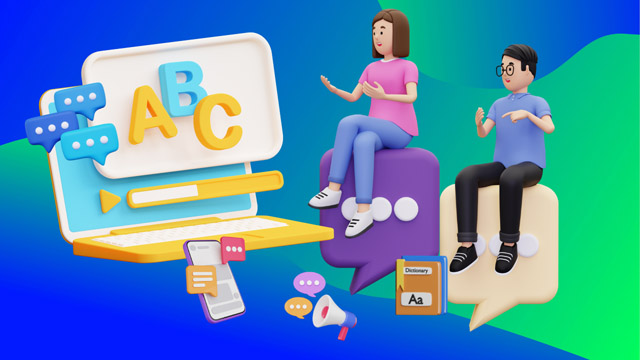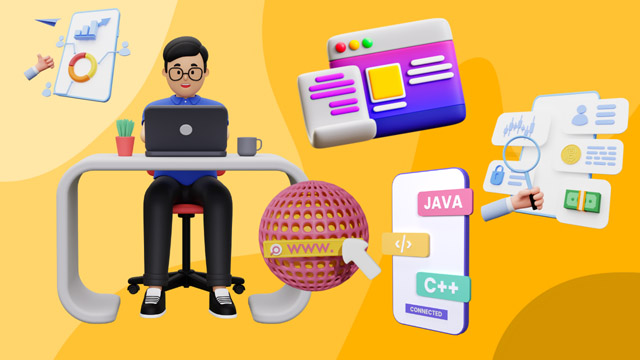- Retail industry in India is undoubtingly one of the fastest growing retail industry in the world. The retail industry includes shopping centers to malls to huge complexes with shopping, entertainment and food all under one roof.
- This course includes topics such as Augmentative Reality (AR) and Virtual Reality (VR) which are future applications in Retail Sector.

KLiC Retail Management
Retail Management Course offers every detail of the Retail Sector necessary to know while working in the industry. It serves as a hand-out of the industry. After completion of this course, you can work in any store or start your own business.
Introduction
Who Should Join
- Aspiring Retail Professionals: Individuals aiming to build a career in the retail industry, including roles such as store managers, sales associates, and merchandisers.
- Students and Graduates in Business and Management: Those pursuing studies in business administration, marketing, or related fields, seeking to specialize in retail management.
- Entrepreneurs and Small Business Owners: Individuals planning to start or enhance their own retail business, looking to gain insights into effective retail strategies and operations.
- Current Retail Employees: Professionals already working in the retail sector who wish to upgrade their skills and knowledge to advance their careers.
- Marketing and Sales Professionals: Individuals aiming to understand the retail environment better to develop effective marketing and sales strategies.
- Individuals Preparing for Competitive Exams: Candidates seeking to strengthen their knowledge of retail management concepts for examinations and assessments.
- Anyone Interested in the Retail Industry: Individuals keen on understanding the dynamics of the retail sector, consumer behaviour, and the latest trends influencing the industry.
What you'll learn ?
- The upcoming trends
- The structure of old and new retail market
- Various opportunities in retail sector
- Various Government policies to support your business
- Taking your existing retail business ahead with online retailing
Certification
This course is recognized by Yashwantrao Chavan Maharashtra Open University (YCMOU) and MKCL. YCMOU will provide the Mark Sheet and MKCL will provide the Expert Certificate subject to fulfillment of requisite criteria. Expert certificate is provided as the appreciation of additional work for the said course in form of mini-projects.
Learning Methodology
The academic approach of the courses focuses on the “work-centric” education i.e. begin with work (and not from a book!), derive knowledge from work and apply that knowledge to make the work more wholesome, useful and delightful. The ultimate objective is to empower the Learner to engage in socially useful and productive work. It aims at leading the learner to his/her rewarding career as an employee or entrepreneur as well as development of the community to which s/he belongs. Learning methodology:
- Step -1: Learners are given an overview of the course and its connection to life and work.
- Step -2: Learners are exposed to the specific tool(s) used in the course through the various real-life applications of the tool(s).
- Step -3: Learners are acquainted with the careers and the hierarchy of roles they can perform at workplaces after attaining increasing levels of mastery over the tool(s).
- Step -4: Learners are acquainted with the architecture of the tool or tool map so as to appreciate various parts of the tool, their functions, utility and inter-relations.
- Step -5: Learners are exposed to simple application development methodology by using the tool at the beginner’s level.
- Step -6: Learners perform the differential skills related to the use of the tool to improve the given ready-made industry-standard outputs.
- Step -7: Learners are engaged in appreciation of real-life case studies developed by the experts.
- Step -8: Learners are encouraged to proceed from appreciation to imitation of the experts.
- Step -9: After the imitation experience, they are required to improve the expert’s outputs so that they proceed from mere imitation to emulation.
- Step-10: Emulation is taken a level further from working with differential skills towards the visualization and creation of a complete output according to the requirements provided. (Long Assignments)
- Step-11: Understanding the requirements, communicating one’s own thoughts and presenting are important skills required in facing an interview for securing a work order/job. For instilling these skills, learners are presented with various subject-specific technical as well as HR-oriented questions and encouraged to answer them.
- Step-12: Finally, they develop the integral skills involving optimal methods and best practices to produce useful outputs right from scratch, publish them in their ePortfolio and thereby proceed from emulation to self-expression, from self-expression to self-confidence and from self-confidence to self-reliance and self-esteem!
Syllabus
- Introduction to Retail
- Key terminologies used in Retail
- Types of Retail Outlets
- Financial Aspects
- Legal Aspects
- Retail Mechanism
- Consumer Behaviour and Expectation
- Communication in Retail
- Handling Difficult Customer
- Category Management
- Pricing in Retail
- Store Operations
- Retail Merchandising
- Retail Marketing
- Multi-channel Retailing
- Challenges in Retail
- Factors to consider before buying a franchise
- Hiring & Managing of Human Resource
- Customer Retention
- Technologies in Retail
- Trends in Retail
- Case Studies
Case Studies and Interviews
This course contain case studies based on everyday practical situations, occur in retail business. The case studies are based on the following retail business:
- D-Mart
- IKEA
- Walmart
- Big Bazaar
We have also included personal interviews of successful retailers narrating their journey in the world of retail.
Evaluation Pattern
Evaluation Pattern of KLiC Courses consists of 4 Sections as per below:
| Section No. | Section Name | Total Marks | Minimum Passing Marks |
|---|---|---|---|
| 1 | Section 1 | 25 | 10 |
| 2 | Section 2 | 25 | 10 |
| 3 | Section 3 | 50 | 20 |
| Total | 100 | 40 |
YCMOU Mark Sheet
Printed Mark Sheet will be issued by YCMOU on successful completion of Section 1, Section 2 and Section 3 and will be delivered to the learner by MKCL.
MKCL's KLiC Certificate
The certificate will be provided to the learner who will satisfy the below criteria:
- Learners who have successfully completed above mentioned 3 Sections i.e. Section 1, Section 2 and Section 3
- Additionally, learner should have completed Section 4 (i.e. Section 4 will comprise of SUPWs i.e. Socially Useful and Productive Work in form of Assignments)
KLiC Courses Fee Structure from 01 July, 2025 Onwards
KLiC 120 hour course fee applicable from 01 July, 2025 all over Maharashtra
| KLiC Course Duration | MFO: MKCL Share (Including 18% GST) |
ALC Share (Service Charges to be collected by ALC) |
MKCL Certificate | YCMOU Marksheet |
|---|---|---|---|---|
| 120 hours (Without YCMOU Marksheet) | Rs. 1,000/- | Rs. 5,000/- | Available | Not Available |
| 120 hours (With YCMOU Marksheet) | Rs. 1,118/- | Rs. 5,000/- | Available | Available |
* Above mentioned fee is applicable for all Modes of KLiC Courses offered at Authorised Learning Center (ALC) and at Satellite Center
* Total fee is including of Course fees, Examination fees and Certification fees
* MKCL reserves the right to modify the Fee anytime without any prior notice
KLiC Courses Fee Structure upto 30 June, 2025
From 01 January 2025 onwards, the fees for all KLiC courses in ALCs of Mumbai Metropolitan Regional Development Authority (MMRDA), Pune Metropolitan Regional Development Authority (PMRDA) and Rest of Maharashtra will be applicable as shown in the table below:
KLiC Courses of 120 Hours:
| Mode | Total Fee (Rupees) |
Single Installment (Rupees) |
Two Installments (Rupees) |
| Single Installment | 6000/- | 6000/- | N/A |
| Two Installments | 6200/- | 3100/- | 3100/- |
Total fee is including of Course fees, Examination fees and Certification fees
* Above mentioned fee is applicable for all Modes of KLiC Courses offered at Authorised Learning Center (ALC) and at Satellite Center
* Total fee is including of Course fees, Examination fees and Certification fees
* MKCL reserves the right to modify the Fee anytime without any prior notice




